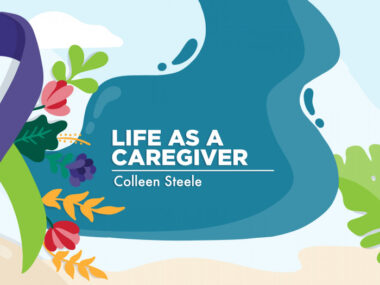A recent injury teaches me that listening to my body is fundamental
A fall and subsequent injury left me with lots of downtime to ponder self-care
Written by |

You may have noticed that I haven’t been writing much in the past few months. That’s because I recently suffered a fall at home that was unrelated to my pulmonary hypertension (PH). Rather, it happened because of my clumsiness as I tried to tackle my to-do list.
The fall left me with a cast on my right hand and wrist. And you guessed it: I’m right-handed! So I’ve been more reliant on assistance in recent weeks than I usually am.
My hand and wrist were broken in two places, so the cast extended quite a ways up my arm. This increased my dependence on others, especially my husband and my daughter. I’m fortunate that they are patient and loving.
Writing was impossible and extremely painful for a while, and I found myself struggling to stay connected to my thoughts. However, this period of rest and downtime taught me valuable lessons about self-care and the power of reconnecting.
Writing offers me healing
When I first started writing about my experiences with PH, my goal was to help others in the community, and I had no idea how much it would benefit me personally. Writing has become deeply therapeutic and healing in my life. It helps me process emotions, document my thoughts, and share my experiences with others who manage or care for someone with PH or other rare diseases.
Through sharing my story, I’ve realized that I’m not alone in my struggles. More importantly, others reading my words have discovered that they aren’t alone, either.

Jen Cueva shows off a purple cast that she inherited after taking a fall — but not because of her husband’s skateboard. (Photo by Manny Cueva)
Being forced to take a break from writing made me realize how crucial rest is, not just physically, but also emotionally and mentally. We all must find balance, but particularly those of us with PH.
How many times have we found ourselves pushing through fatigue or pain because we felt like we should be doing something? I’ve felt that way countless times. Resting can feel unproductive, as if we’re missing out on something. But I’ve come to learn, and am gently reminding myself every day, that listening to my body is essential to healing.
Those days spent in comfy pajamas and fuzzy socks aren’t just moments of stillness; they’re also moments of recovery and self-care. Taking a pause doesn’t mean we’re giving up. It means we’re giving ourselves the grace to regain strength so that we can move forward again. As difficult as it is to remember this in the moment, resting is part of the rhythm of living with PH.
During my recent downtime, I often felt like I was missing a crucial part of myself. I’ve always been a talker, so during my recovery, I swapped in-person conversations with long-winded audio messages as a way to stay connected, even when I couldn’t physically engage with people.
Connection is everything to me, whether it’s sending a message to a friend, leaving a voicemail, or simply reflecting in a journal. These small gestures serve as lifelines to joy and offer reasons to persevere on tough days. And trust me, there’s always time to reconnect with loved ones or to resume doing that hobby you’ve missed.
It’s such a great feeling to be back. I’ve missed you all and would love to hear your thoughts in the comments below.
Note: Pulmonary Hypertension News is strictly a news and information website about the disease. It does not provide medical advice, diagnosis, or treatment. This content is not intended to be a substitute for professional medical advice, diagnosis, or treatment. Always seek the advice of your physician or other qualified health provider with any questions you may have regarding a medical condition. Never disregard professional medical advice or delay in seeking it because of something you have read on this website. The opinions expressed in this column are not those of Pulmonary Hypertension News or its parent company, Bionews, and are intended to spark discussion about issues pertaining to pulmonary hypertension.




Randy Reynolds
Jen
Do suppose that taking a break to heal a break (your wrist) was foreordained? Easier to say 'Why me Lord?' Writing is more that my hobby it is my own therapy - of sorts. Well you managed to write about what happened so you must be on the mend. Keep up the good work as a Key Master, if that term is still in use..
Be well and blessings
Randy
Jen Cueva
Hi Randy,
You know, I was thinking the exact same thing, my dear PHriend! Like the nurse said, it really felt like someone was telling me I needed a break—haha.
Like you, writing, is therapeutic for me, so I truly missed it! But yes, I’m finally out of my cast and brace, and I can’t tell you how freeing it feels. I almost feel like a teenager again—haha. Unfortunately that's my mind, my body says, no way! 😊
You’re so kind, and I deeply appreciate your encouragement and support. It means a lot to me.
I hope you’re doing well, my dear PHriend! Stay cool in the heat this summer!